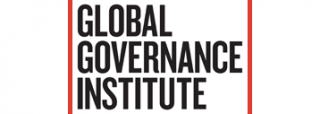More than Environmental Policies - A Just Transition to a Green Economy
7 March 2019
Mary Lee (MSc Global Governance and Ethics) on a GGI panel discussion with Isabell Kempf, Steve Bass, Paul Steele and Oliver Greenfield.

Decades of unsustainable development have led to environmental destruction and externalities that actors across the globe are now scrambling to seek solutions to. A greener economy will require a radical shift towards more environmentally friendly policies that are actually implemented and enforced. But a just transition to such an economy has proven to be tricky - the ongoing yellow vest movement in France, initially a response to rising fuel taxes, has highlighted the need to advance social and economic justice in parallel with environmental reforms.
On 21 February, the GGI held a panel discussion, titled ‘Governance for a Just Transition to a Green Economy’, to shine a light on what kind of governance, institutions and actors are needed to bring forth a fair, well-supported change. Panellists included Dr Isabell Kempf (UNDP-UNEP Poverty-Environment Action for SDGs, UN Environment), Steve Bass (Senior Associate, International Institute for Environment and Development), Paul Steele (Chief Economist, International Institute for Environment and Development), and Oliver Greenfield (Convener, Green Economy Coalition). Drawing from global examples, the panel acknowledged that a divide between government policies and people’s needs and demands can be detrimental to efforts to advance a green economy.
With reference to her work with the United Nations, Kempf explained that to support countries in the Poverty-Environment Initiative (PEI) of UNDP and UN Environment, the need for policy coherence is crucial. Environmental and social policies need to work in tandem, ensuring that polluters and those who are using more energy are paying more taxes. She noted that the poor are often the cost bearers of the brown economy. For example, air pollution, which is the single largest environmental health risk in Europe, causing around 400,000 premature deaths per year, disproportionately affects poor and marginalised communities. Kempf stressed that the PEI is striving to protect the poor, providing them with access to energy, water, and a clean environment.
Tackling the issue from the perspective of domestic governance, Bass urged for a broad institutional reform to support the actual delivery of policies for environmental reform and development. He emphasised the need for a coherent, coordinated approach, rather than simply ‘dividing up’ the Sustainable Development Goals (SDGs) and allocating them to different government bodies. In such a process of overhauling the institutional landscape, new institutions with new mandates (such as Future Generation Commissions) will also need to be created and existing institutions will need to re-examine their responsibilities.
As the economist of the group, Steele was concerned with how public and private finance can facilitate a fair transition. He saw great potential in integrating environmental issues into all stages of government budget cycles and private investment cycles, from the preparatory phase to implementation, monitoring and oversight. He noted that this is already a trend in many developing countries, in particularly in Asia, but has yet to make an impact in developed countries.
But it was perhaps Greenfield's argument that resonated most with the room. He emphasised the importance of people-driven movements in bringing sustainable development into actuality, leading to greater systematic change. While electoral cycles determine which politicians are in office, consistent societal demand for green policies is needed to motivate politicians to make the green economy a core policy goal. To mobilise the public, Greenfield argued, advocacy groups, activists, and individuals should start with where the people are at. Finding an iconic issue that people are affected by, such as air quality, and amplifying it, could help build conversations and give people a sense of ownership of their future.
Greenfield noted the takeaway message of the panel discussion in his concluding remarks. "How does everyone get a stake [in this transition]?" he said, "It starts by engagement, it starts by being involved in a conversation."
 Close
Close


